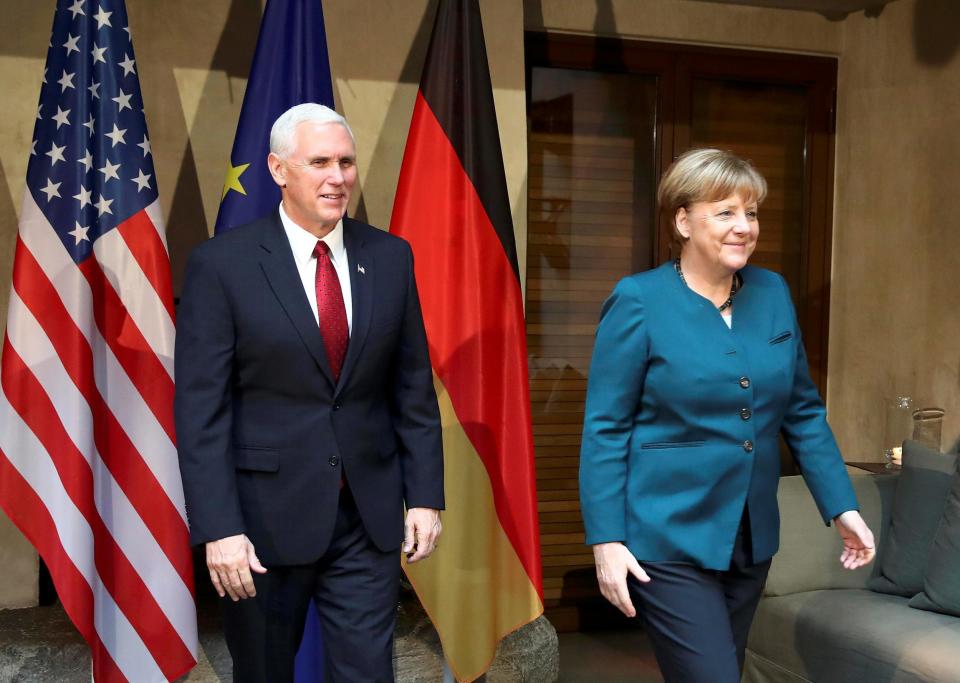EU leaders defiant over US pressure to increase Nato defence budgets

German Chancellor Angela Merkel has ruled out increasing Nato defence spending less than a week after the Trump administration issued an ultimatum to members.
Ms Merkel said Germany would honour its long-standing commitment to increase defence budgets by 2024 but would not accelerate its plans.
It came as European Commission President Jean-Claude Juncker urged Europe's leaders to resist US pressure to increase European defence spending.
Donald Trump has repeatedly called for Nato members in Europe to increase their defence spend, and his defence secretary James Mattis said the US would be ready to "moderate its commitment" to the alliance if other members did not pay their fair share.
Nato guidelines call for all 28 members of the collective defence alliance to spend two per cent of GDP on military budgets.
However, only five of those members do so in reality – America, Britain, Greece, Estonia and Poland.
Speaking at the Munich Security Conference, General Mattis warned of an "arc of instability" on Europe's periphery and called on Nato allies to contribute more.
"We all see our community of nations under threat on multiple fronts as the arc of instability builds on Nato's periphery and beyond," he said.
However, European Commission President Jean-Claude Juncker said Europe should not allow itself to be "pushed into this."
“It has been the American message for many, many years,” he said. “I am very much against letting ourselves be pushed into this.”
Mr Juncker argued the EU’s development and humanitarian aid spending made up for any shortfalls in military financing, and echoed Ms Merkel’s sentiments that development and “crisis prevention” had to be areas of focus.
“If you look at what Europe is doing in defence, plus development aid, plus humanitarian aid, the comparison with the United States looks rather different. Modern politics cannot just be about raising defence spending,” he said.
"Europeans must bundle their defence spending better and spend the money more efficiently.”

 Yahoo News
Yahoo News 